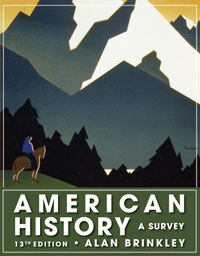1 A) independence immediately became an American war aim. B) Congress rejected the "Olive Branch Petition" that was an effort at reconciliation with Britain. C) the minutemen advanced on Montreal and Quebec. D) people immediately viewed independence as a war aim, but it took Congress over a year to concur. E) it took almost a year for independence to become a primary war aim. 2 A) helped Americans reconcile their differences with England. B) persuaded Americans that no reconciliation with Britain was possible. C) supported the concept of the English constitution. D) argued that Parliament, not the King, was the enemy. E) argued that William Pitt could be reasonably dealt with. 3 A) economic or ideological. B) economic or religious. C) religious or military. D) based on disputes between slaveowners and non-slaveowners. E) a power struggle between Patriots and Loyalists. 4 A) give men an opportunity to exert power. B) reward loyal servants of the state. C) promote democracy. D) control every aspect of human thought and action. E) protect a person's life, freedom, and right to pursue happiness. 5 A) came primarily from volunteers. B) immediately came under the control of the federal government. C) came from both conscription and payment of bounties. D) were primarily paid substitutes. E) increasingly were composed of friendly Indians and freed slaves. 6 A) American manufacturers. B) the seizure of British forts and the surrender of British armies. C) the capture of supply ships by American privateers. D) foreign aid. E) the Springfield armory. 7 A) the greatest navy and the best-equipped army in the world. B) superior industrial resources. C) greater commitment to the conflict. D) a coherent structure of command. E) None of these answers is correct. 8 A) selling bonds. B) minting gold and silver coins. C) borrowing from other nations. D) taxing the wealthy. E) printing paper money. 9 A) knowledge of military affairs. B) Masonic connections with European grand lodges. C) successful military experience in the Great War for the Empire. D) relaxed, informal way with his men. E) image among the people, who trusted and respected him. 10 A) they had a better chance of success in the South where Tory support was stronger. B) the war had become more than just a local phenomenon around Boston. C) the American invasion of Canada had taken away a substantial amount of British territory. D) that they could win the war by taking Boston. E) they could win with a naval blockade. 11 A) won no victories, major or minor. B) become badly divided and scattered. C) retreated into western Pennsylvania. D) won two minor victories and remained intact. E) taken up winter quarters at Valley Forge. 12 A) convinced the French that they should help the Americans. B) caused the British to consider giving up the fight. C) made George Washington a military hero. D) had little effect on the war in the long run. E) led the British to concede New England to the Americans. 13 A) there was less population there. B) they believed there were more Loyalists there. C) they thought slaves would help them. D) they had more Indian allies there. E) they believed the terrain to be more favorable to conventional tactics. 14 A) shocked American forces. B) came as no surprise since he was not highly regarded. C) led to the surrender of the fort at West Point. D) resulted in Arnold's hanging. E) resulted in a shakeup of the American high command. 15 A) Clinton ordered Cornwallis to surrender. B) Washington was able to defeat the British in the field. C) Americans were finally better trained than the British. D) the British commander underestimated the size of Washington's army. E) French troops and a French fleet helped trap the British. 16 A) they feared the Americans might take Canada. B) British agents were at work among the common folk of Paris. C) they were committed to staying in the war until Spain got Gibraltar. D) Spain was insisting on getting the Virgin Islands. E) the Dutch insisted on taking over the British tea trade. 17 A) western farmers. B) slaves. C) traders and trappers. D) Anglicans. E) the Quakers. 18 A) generally fought in the war on the side of the British. B) generally fought in the war on the side of the Americans. C) were unaffected by the revolution. D) saw their position improved by the results of the Revolution. E) generally stayed neutral in the war. 19 A) things generally went back to the way they were before and few concrete reforms occurred in the status of women. B) women were able to translate wartime gains into peacetime reforms. C) women were recognized and honored for their contributions with new careers. D) women got the right to vote in most northern colonies. E) women became leading educators. 20 A) harbored racist assumptions about the natural inferiority of blacks. B) never considered it immoral or wrong. C) feared free blacks would return to Africa. D) refused to consider plans to compensate slaveholders for gradual emancipation of slaves. E) believed slave labor enhanced American states in world trade. 21 A) there should be no property qualifications to vote. B) states should have democratic governments. C) the Articles of Confederation needed to be replaced by a constitution. D) some men were born to govern and some were born to follow. E) new governments should be republican. 22 A) Supreme Court. B) Congress. C) president of the United States. D) Senate. E) Post Office.





